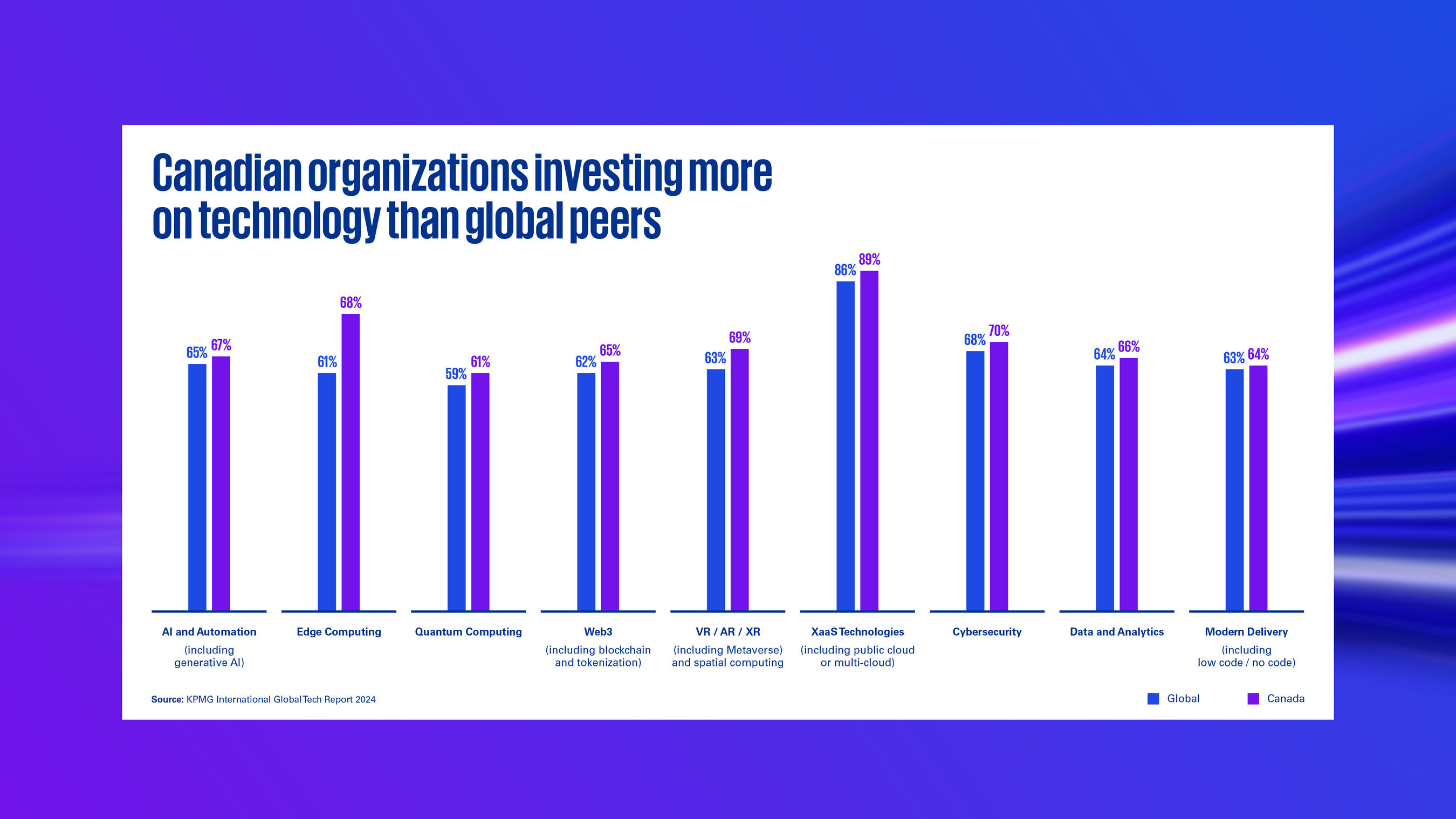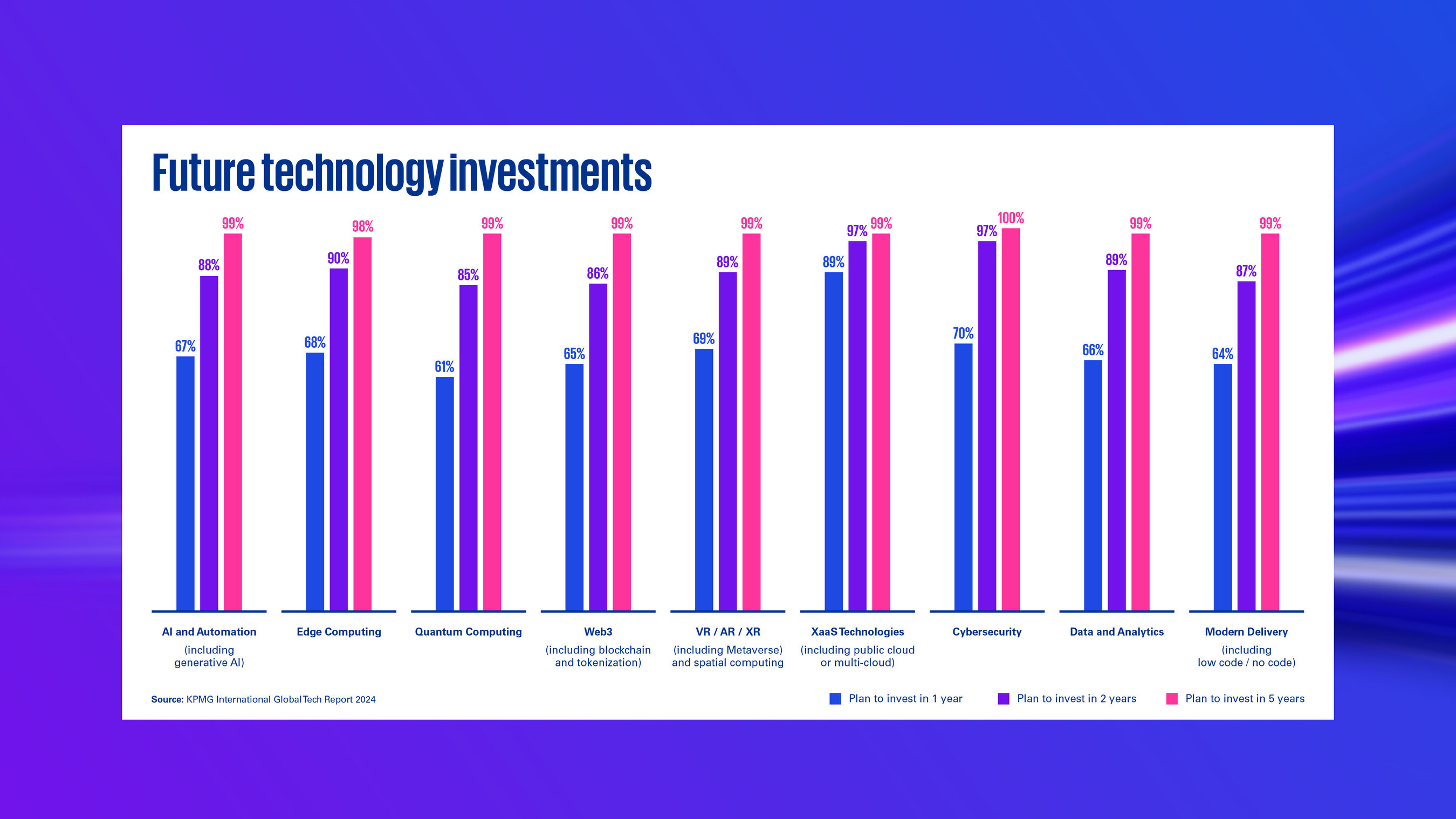
'With more sustained investments like this, Canada's productivity could finally see a meaningful boost'

Canadian organizations have upped their investment in technology, and this is resulting in positive returns, according to a KPMG report.
Overall, nearly all (99%) of Canadian technology leaders say they started implementing artificial intelligence (AI) – a 39-per-cent increase from last year.
As a result, 93% of Canadian respondents have indicated they have already seen an increase in profitability from implementing AI.
And Canadian companies are investing more in technology compared with enterprises in other parts of the world.

Source: KPMG
"After years of relative underinvestment, Canadian organizations have done a major pivot and are now investing more in technology than their global peers - this is a significant leap forward,” says Stephanie Terrill, KPMG's Canadian Managing Partner of Digital and Transformation.
“With more sustained investments like this, Canada's productivity could finally see a meaningful boost.”
Generative artificial intelligence is saving workers about an hour of work each day, on average. But there are some workers who are saving more than one hour from work thanks to the technology, according to a recent report from the Adecco Group.
Nearly nine in 10 (89 per cent) respondents say their technology investments are driven by successful pilot projects and proof-of-concept testing of various solutions, according to KPMG’s 2024 KPMG Global Tech Survey.
The survey included 2,450 technology leaders globally – including 150 respondents in Canada – and was conducted between May 3 and June 26, 2024.
Over the past two years, AI is among the most profitable technologies. Specifically, 56% of respondents saw a 10% or more profit increase from their investments on AI. There have also been similar returns in investments in cybersecurity (56%) and data and analytics (53%).
And organizations are going to be investing more into technology in the near future:

Source: KPMG
This is the case even though among respondents that have started implementing AI, only 38% are proactively progressing against their strategy, while more than half (56%) are either behind schedule or being held up by investment approvals.
"Organizations that are behind in their AI implementations need to address and remove the barriers that are holding them back,” says Ven Adamov, partner and national leader of KPMG in Canada's Data and Analytics Risk Services.
“Often, AI investments are delayed because certain risks have not been addressed, or because new or unanticipated risks emerge. Implementing a trusted AI framework from the outset can help reduce the number of unexpected hurdles that pop up during the AI implementation phase. In the absence of prescriptive regulations, there are proven best practices that can be adopted for that purpose.”
The majority of global enterprises that use generative AI have reported payoffs within the first year of its implementation, according to a previous Google Cloud poll.